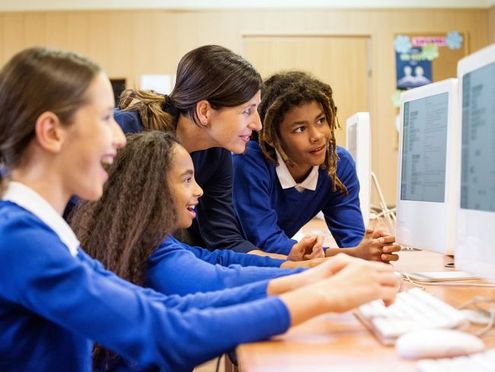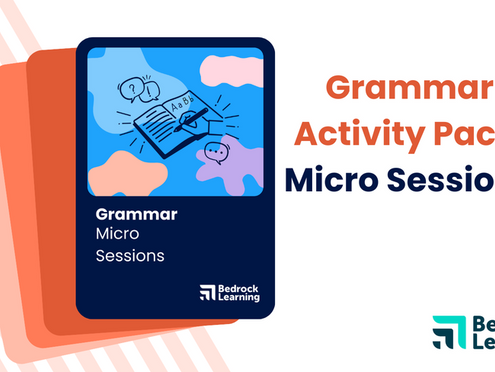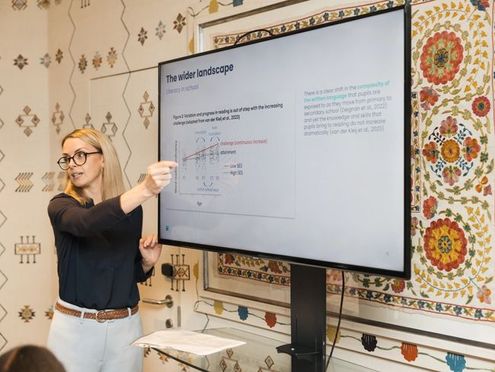What is media literacy?
Media literacy is the ability to comprehend, analyse, evaluate and draw conclusions from media texts in a variety of forms. This could be a news article from an online newspaper, a blog post from an influencer, or even a post on Twitter and Facebook.
In a society where an increasing amount of the news we consume is online and available at the click of a button, it’s important for your learners’ academic success (and their safety) that they have the tools to read between the lines.
Why does media literacy matter?
1. Your students probably already use it
In subjects like History, your learners are already using their media literacy skills. Analysing questions like source, reliability, author intent - all of these questions relate back to media literacy. The only difference is your learners being able to apply these critical thinking skills to news which is online, not just historical resources. If your learners are able to do this, you’ll find them thinking in new ways about the content you provide for them in the classroom, too.
2. The way we obtain information is changing
When was the last time you went to the library to find information about a new topic? Unless you’re a dedicated academic (and if you are, we applaud you!), you likely haven’t in a while. Why would you, when Google is handy with the education and resources you need?
The only issue is knowing whether these resources are providing the right information. Take Google as an example: this search engine grows smarter every time someone completes a search, so it tries its best to provide searchers with accurate, relevant information about the topic they’re curious about - but ultimately, it’s just a robot.
The people creating the information algorithms sift through are human and have biases, make errors, and have their own intentions for publishing it. It’s important that your learners understand this when seeking facts online. Equipping learners with the knowledge to sift through the sea of news and find reputable sources is a skill that will last them a lifetime.
3. It improves learners’ critical thinking skills
Critical thinking skills are important for every subject. Not only do they help learners identify what is being asked of them in a task, or what a task is inferring, but it also helps them make thoughtful decisions and solve problems effectively.
In every subject, in every situation, learners are presented with new information and asked to form conclusions. As a teacher, you want those conclusions to be well founded. To help your learners come to informed, situation-appropriate conclusions, critical thinking skills are vital - these are the sorts of skills learners develop when given the tools to navigate online media properly.
The benefits of great critical thinking skills can be felt in every discipline, so teachers of all subjects can play a part in building up their learners’ repertoire of skills needed to boost media literacy.
4. It supports inference skills
The skills learners use to read between the lines in an online article are the same skills they can apply to analysing a text. Authorial intent, socio-economic impact, bias, emotion - all of these features can be found in a set text for English Literature. When your learners analyse Of Mice and Men, questioning the economic situation in which the book was written and Steinbeck’s attitudes towards marginalised communities, these are the same skills they use to determine if a news article is reputable. In this way, media literacy works together with other forms of learning to strengthen a learner’s literacy skills.
Additionally, the ability to extend these inference skills outside of the English classroom and into the world has a fantastic impact on their literacy skills in other subjects, as well as throughout their lives. If your school is focusing on disciplinary literacy, media literacy is a universal tool that equips learners with confidence in every subject, not just English.
5. Learners need it to thrive in a changing world
Ultimately, media literacy is an essential skill in today’s society. The internet has become a massive part of how we communicate and function, and we don’t see it going away any time soon. While finding news and information on the internet can have its pros and its cons, the best thing you can do for your learners is equip them with the skills to make the most of this new tool.
As well as this, there are ways to bring the benefits of online education into your classroom. Whether it’s through live modelling, online homework tools or edtech solutions such as Bedrock Learning, the internet has a lot of valuable information you can harness for your learners - as long as they know how to think critically about it.




